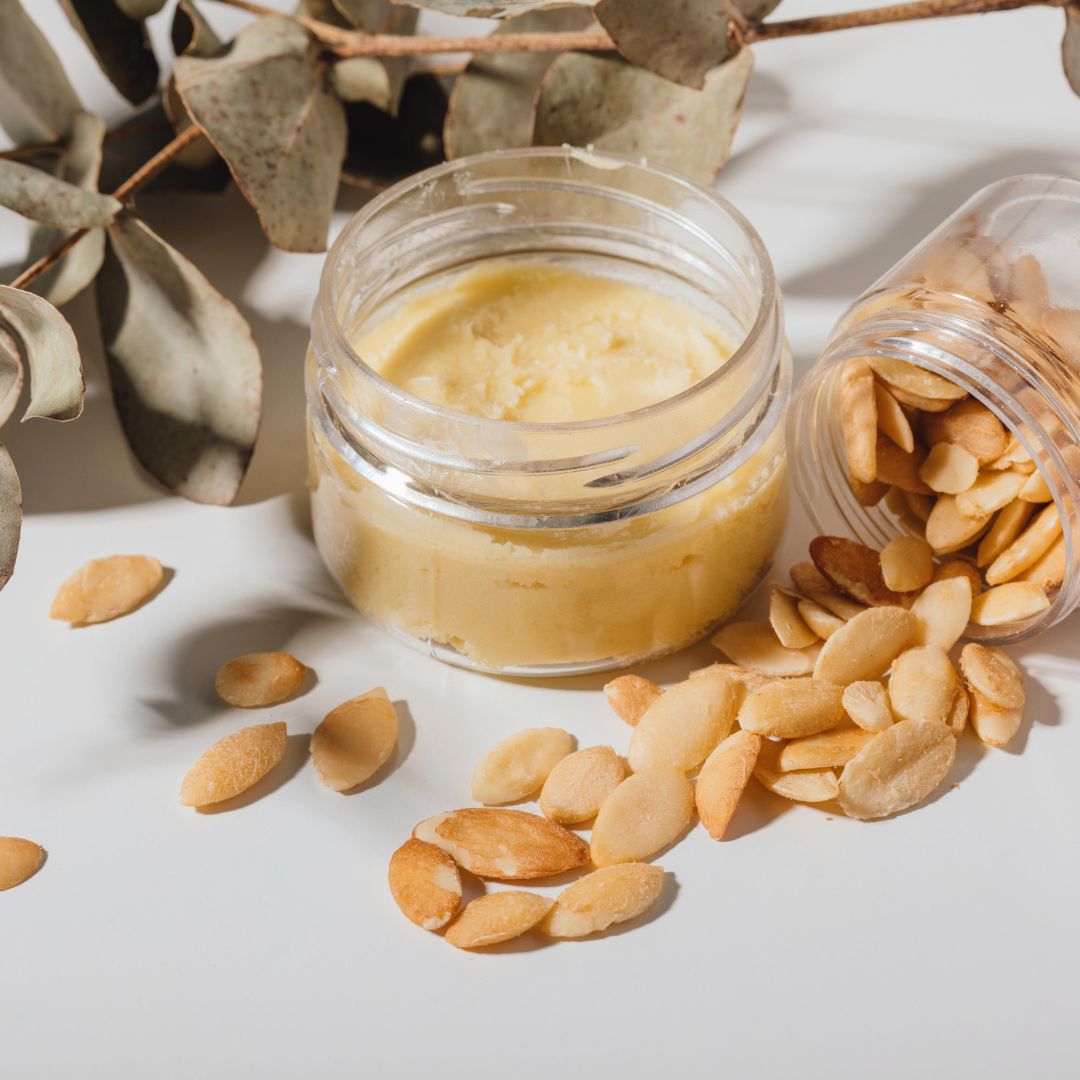
As consumers, we like to be a lot more clued up on what the various skincare ingredients do, with most skincare enthusiasts knowing their hyaluronic acid from their retinol. But as we enter the throws of winter, shea butter is one to have on your radar. I asked two experts to explain the benefits of shea butter for skin in this need-to-know guide.
"Shea butter is a popular skincare ingredient derived from the nuts of the shea tree,” explains Dr. Aiza Jamil, consultant dermatologist at sk:n clinics. “It has a rich history of use in traditional African skincare and is known for its nourishing and moisturising properties.”
“Shea butter is a plant lipid that is rich in fatty acids, antioxidants, and vitamins,” adds Dr. Sonia Khorana, GP and cosmetic doctor with a special interest in dermatology. “It’s great for anyone with dry skin and you can use it as [often] as you want.” Ahead are its key benefits, who it’s best for and who may want to avoid it.
What are the benefits of shea butter for skin?
This is a very nourishing skincare ingredient. "Shea butter is highly emollient and has a rich texture, making it an excellent moisturizer for dry and dehydrated skin," says Dr. Jamil. “It helps to lock in moisture, keeping the skin hydrated for an extended period.” It is found in face moisturisers but is very popular in the best body lotions and creams, lip balms and hand creams.
Where popular hydrating ingredient hyaluronic acid is a humectant, meaning it draws moisture into the skin, shea butter's emollient properties mean that it moisturises and fortifies the skin barrier to help keep moisture in your skin.
"Shea butter contains essential fatty acids, vitamins, such as A and E, and antioxidants," Dr. Jamil continues. "These nutrients nourish the skin, promoting overall skin health and protecting against environmental stressors. The vitamins in shea butter, particularly vitamin A, may [also] stimulate collagen production, which is essential for maintaining skin elasticity and preventing the formation of fine lines and wrinkles."
It’s also a soothing ingredient when used in one’s skincare routine—AKA great for any areas of sore, dry winter skin. “Shea butter has anti-inflammatory properties that can help soothe irritated and inflamed skin. This makes it beneficial for individuals with conditions like eczema, psoriasis, or dermatitis." She also notes that it can be used as a soothing post-shaving moisturiser and may help to reduce the appearance of scars, as its healing abilities can aid the skin’s repair process.
Because it is soothing and non-comedogenic, it’s generally considered to be suitable most skin types, including sensitive skin. “Its natural composition makes it less likely to cause irritation, making it a suitable option for those with sensitive or easily irritated skin,” Dr. Jamil confirms. However, there are a couple of things to consider before you add it to your skincare routine.
What are the downsides of shea butter for skin?
Though it is considered a good option for sensitive skin, everybody’s skin is different. “As with any skincare ingredient, it's advisable to conduct a patch test before using shea butter widely, especially if you have sensitive or allergy-prone skin,” Dr. Jamil confirms. “If you have specific skin concerns or conditions, it's also a good idea to consult with a dermatologist for personalised advice.”
“Individuals with nut allergies should exercise caution, as shea butter is derived from the nuts of the shea tree,” she adds. While allergic reactions to shea butter are rare, it's essential to patch-test before widespread use.”
Due to its richness, it also may not be the most suitable choice for a skincare routine for acne. “While shea butter is non-comedogenic, meaning it is less likely to clog pores, some individuals with acne-prone skin may find it too rich and may want to patch-test to ensure it does not cause breakouts,” Dr. Jamil adds. It’s always best to err on the side of caution with any products containing shea butter that are new to you and your skin—below are some recommendations to shop now.
The best shea butter products for skin
A beautiful nourishing hand cream to keep in your handbag to prevent chapped skin.
A fast absorbing, non-greasy body cream that's super affordable.
The Body Shop sources its Community Fair Trade shea butter from local farmers in Ghana.
Don't forget your feet - take care of them in winter to make the transition to sandal-season easier. One of the best foot creams out there.







